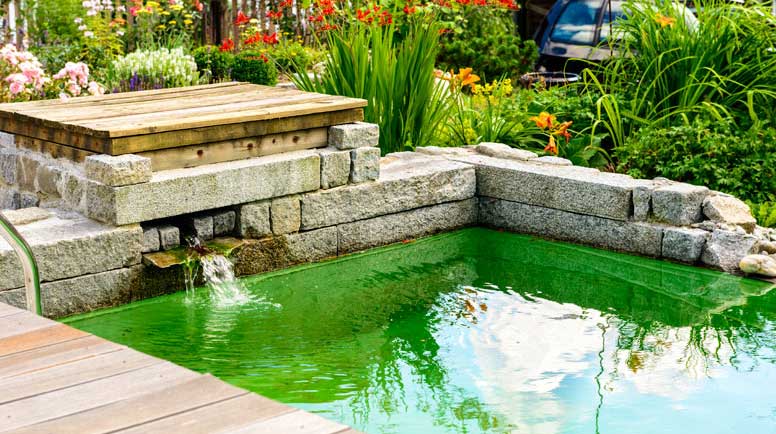Pumps remove extra debris and prevent sludge building, allowing clean water to flow throughout the pond. In addition to increasing the amount of dissolved oxygen in the water, their method of waste removal is also very advantageous to fish and other aquatic life.
However, every pump will eventually need to be inspected and cleaned. It is still only a dream to have an entirely self-cleaning, maintenance-free pump. Even the best ones might become clogged up over time, particularly in ponds with abundant life. Prevention is always better, and here are some tips for handling debris in your ponds and pumps.
Daily inspection
Testing the water quality and inspecting the ponds daily is essential. Making critical observations and identifying potential issues requires a brief walk to the pond. Monitor trash on the pond’s water surface or bottom, such as twigs, dropped leaves, and decomposing plants. It can be quite beneficial to routinely remove these before they get to the pump in your pond.
Additionally, keep an eye out for lower water flow and modifications in fish behavior. These could be signs that the pump isn’t working correctly. Dead or missing fish may find their way to your pump’s intake valve or begin to rot on the pond’s bottom.
Keep the pump operational.
Some pond owners temporarily turn off their pond pumps to reduce their energy expenditures. In the long run, this behavior may cost more time and labor. The more often a PumpBiz pump is on and off, the more debris may accumulate inside or on the pond floor, eventually clogging the pump.
If using a pump once in a while is necessary, you will need to clean the pond and the pump more frequently. Regularly check the intake valves and clear any debris that has been lodged. Make sure to skim the pump’s chambers if you have time to disassemble it.
Take advantage of beneficial bacteria.
As bio-remediators, beneficial bacteria can break down unwanted nutrients before they can build up and hurt your fish. Particularly in naturally occurring freshwater systems, they are vital to maintaining the cleanliness of pond water. They support the breakdown of waste into tiny particles that can pass through the pump and filter in ornamental ponds without clogging them.

It takes much longer for organic waste to decompose when no helpful bacteria are present. If the decomposing components are not eliminated, this could have a cascading effect on the remainder of the system, leading to consistently high concentrations of hazardous materials.
Manually remove sludge
Chunks of the sludge may float to the surface and enter the pond pump if disturbed. Typically, these fragments are too big and heavy to pass through the filter, clogging it. You can physically remove sludge with a net, but before doing so, take your fish to a holding tank because it can be quite hazardous.
conclusion
A lack of rigorous maintenance is the main cause of blocked pond pumps. Therefore regularly inspecting your pond and pump is advisable to catch problems early.

